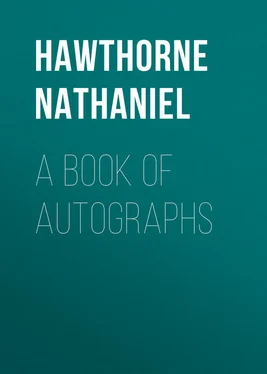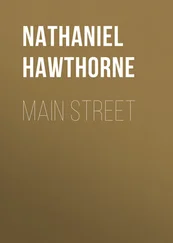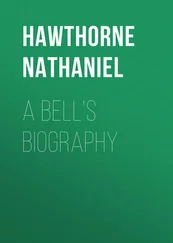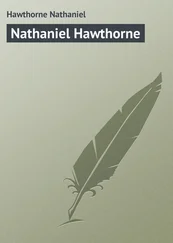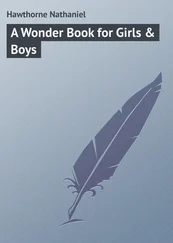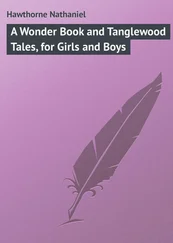Nathaniel Hawthorne - A Book of Autographs
Здесь есть возможность читать онлайн «Nathaniel Hawthorne - A Book of Autographs» — ознакомительный отрывок электронной книги совершенно бесплатно, а после прочтения отрывка купить полную версию. В некоторых случаях можно слушать аудио, скачать через торрент в формате fb2 и присутствует краткое содержание. Жанр: literature_19, foreign_antique, foreign_prose, на английском языке. Описание произведения, (предисловие) а так же отзывы посетителей доступны на портале библиотеки ЛибКат.
- Название:A Book of Autographs
- Автор:
- Жанр:
- Год:неизвестен
- ISBN:нет данных
- Рейтинг книги:4 / 5. Голосов: 1
-
Избранное:Добавить в избранное
- Отзывы:
-
Ваша оценка:
- 80
- 1
- 2
- 3
- 4
- 5
A Book of Autographs: краткое содержание, описание и аннотация
Предлагаем к чтению аннотацию, описание, краткое содержание или предисловие (зависит от того, что написал сам автор книги «A Book of Autographs»). Если вы не нашли необходимую информацию о книге — напишите в комментариях, мы постараемся отыскать её.
A Book of Autographs — читать онлайн ознакомительный отрывок
Ниже представлен текст книги, разбитый по страницам. Система сохранения места последней прочитанной страницы, позволяет с удобством читать онлайн бесплатно книгу «A Book of Autographs», без необходимости каждый раз заново искать на чём Вы остановились. Поставьте закладку, и сможете в любой момент перейти на страницу, на которой закончили чтение.
Интервал:
Закладка:
Nathaniel Hawthorne
A Book of Autographs
A BOOK OF AUTOGRAPHS
We have before us a volume of autograph letters, chiefly of soldiers and statesmen of the Revolution, and addressed to a good and brave man, General Palmer, who himself drew his sword in the cause. They are profitable reading in a quiet afternoon, and in a mood withdrawn from too intimate relation with the present time; so that we can glide backward some three quarters of a century, and surround ourselves with the ominous sublimity of circumstances that then frowned upon the writers. To give them their full effect, we should imagine that these letters have this moment been brought to town by the splashed and way-worn postrider, or perhaps by an orderly dragoon, who has ridden in a perilous hurry to deliver his despatches. They are magic scrolls, if read in the right spirit. The roll of the drum and the fanfare of the trumpet is latent in some of them; and in others, an echo of the oratory that resounded in the old halls of the Continental Congress, at Philadelphia; or the words may come to us as with the living utterance of one of those illustrious men, speaking face to face, in friendly communion. Strange, that the mere identity of paper and ink should be so powerful. The same thoughts might look cold and ineffectual, in a printed book. Human nature craves a certain materialism and clings pertinaciously to what is tangible, as if that were of more importance than the spirit accidentally involved in it. And, in truth, the original manuscript has always something which print itself must inevitably lose. An erasure, even a blot, a casual irregularity of hand, and all such little imperfections of mechanical execution, bring us close to the writer, and perhaps convey some of those subtle intimations for which language has no shape.
There are several letters from John Adams, written in a small, hasty, ungraceful hand, but earnest, and with no unnecessary flourish. The earliest is dated at Philadelphia, September 26, 1774, about twenty days after the first opening of the Continental Congress. We look at this old yellow document, scribbled on half a sheet of foolscap, and ask of it many questions for which words have no response. We would fain know what were their mutual impressions, when all those venerable faces, that have since been traced on steel, or chiselled out, of marble, and thus made familiar to posterity, first met one another's gaze! Did one spirit harmonize them, in spite of the dissimilitude of manners between the North and the South, which were now for the first time brought into political relations? Could the Virginian descendant of the Cavaliers, and the New-Englander with his hereditary Puritanism, – the aristocratic Southern planter, and the self-made man from Massachusetts or Connecticut, – at once feel that they were countrymen and brothers? What did John Adams think of Jefferson? – and Samuel Adams of Patrick Henry? Did not North and South combine in their deference for the sage Franklin, so long the defender of the colonies in England, and whose scientific renown was already world-wide? And was there yet any whispered prophecy, any vague conjecture, circulating among the delegates, as to the destiny which might be in reserve for one stately man, who sat, for the most part, silent among them? – what station he was to assume in the world's history? – and how many statues would repeat his form and countenance, and successively crumble beneath his immortality?
The letter before us does not answer these inquiries. Its main feature is the strong expression of the uncertainty and awe that pervaded even the firm hearts of the Old Congress, while anticipating the struggle which was to ensue. "The commencement of hostilities," it says, "is exceedingly dreaded here. It is thought that an attack upon the troops, even should it prove successful, would certainly involve the whole continent in a war. It is generally thought that the Ministry would rejoice at a rupture in Boston, because it would furnish an excuse to the people at home" [this was the last time, we suspect, that John Adams spoke of England thus affectionately], "and unite them in an opinion of the necessity of pushing hostilities against us."
His next letter bears on the superscription, "Favored by General Washington." The date is June 20, 1775, three days after the battle of Bunker Hill, the news of which could not yet have arrived at Philadelphia. But the war, so much dreaded, had begun, on the quiet banks of Concord River; an army of twenty thousand men was beleaguering Boston; and here was Washington journeying northward to take the command. It seems to place us in a nearer relation with the hero, to find him performing the little courtesy of leaving a letter between friend and friend, and to hold in our hands the very document intrusted to such a messenger. John Adams says simply, "We send you Generals Washington and Lee for your comfort"; but adds nothing in regard to the character of the Commander-in-Chief. This letter displays much of the writer's ardent temperament; if he had been anywhere but in the hall of Congress, it would have been in the intrenchment before Boston.
"I hope," he writes, "a good account will be given of Gage, Haldiman, Burgoyne, Clinton, and Howe, before winter. Such a wretch as Howe, with a statue in honor of his family in Westminster Abbey, erected by the Massachusetts, to come over with the design to cut the throats of the Massachusetts people, is too much. I most sincerely, coolly, and devoutly wish that a lucky ball or bayonet may make a signal example of him, in warning to all such unprincipled, unsentimental miscreants for the future!"
He goes on in a strain that smacks somewhat of aristocratic feeling: "Our camp will be an illustrious school of military virtue, and will be resorted to and frequented, as such, by gentlemen in great numbers from the other colonies." The term "gentleman" has seldom been used in this sense subsequently to the Revolution. Another letter introduces us to two of these gentlemen, Messrs. Acquilla Hall and Josias Carvill, volunteers, who are recommended as "of the first families in Maryland, and possessing independent fortunes."
After the British had been driven out of Boston, Adams cries out, "Fortify, fortify; and never let them get in again!" It is agreeable enough to perceive the filial affection with which John Adams, and the other delegates from the North, regard New England, and especially the good old capital of the Puritans. Their love of country was hardly yet so diluted as to extend over the whole thirteen colonies, which were rather looked upon as allies than as composing one nation. In truth, the patriotism of a citizen of the United States is a sentiment by itself of a peculiar nature, and requiring a lifetime, or at least the custom of many years, to naturalize it among the other possessions of the heart.
The collection is enriched by a letter dated "Cambridge, August 26, 1775" from Washington himself. He wrote it in that house, – now so venerable with his memory, – in that very room, where his bust now stands upon a poet's table; from this sheet of paper passed the hand that held the leading-staff! Nothing can be more perfectly in keeping with all other manifestations of Washington than the whole visible aspect and embodiment of this letter. The manuscript is as clear as daylight; the punctuation exact, to a comma. There is a calm accuracy throughout, which seems the production of a species of intelligence that cannot err, and which, if we may so speak, would affect us with a more human warmth, if we could conceive it capable of some slight human error. The chirography is characterized by a plain and easy grace, which, in the signature, is somewhat elaborated, and becomes a type of the personal manner of a gentleman of the old school, but without detriment to the truth and clearness that distinguish the rest of the manuscript.
Читать дальшеИнтервал:
Закладка:
Похожие книги на «A Book of Autographs»
Представляем Вашему вниманию похожие книги на «A Book of Autographs» списком для выбора. Мы отобрали схожую по названию и смыслу литературу в надежде предоставить читателям больше вариантов отыскать новые, интересные, ещё непрочитанные произведения.
Обсуждение, отзывы о книге «A Book of Autographs» и просто собственные мнения читателей. Оставьте ваши комментарии, напишите, что Вы думаете о произведении, его смысле или главных героях. Укажите что конкретно понравилось, а что нет, и почему Вы так считаете.
